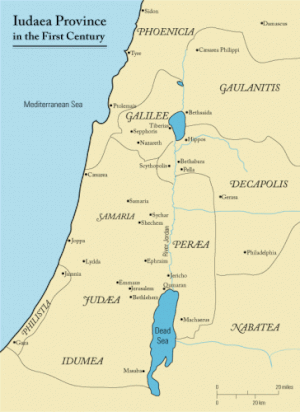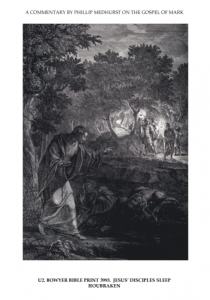
Much has been said about Mark’s poor knowledge of the geography of Palestine. A classic case is his bizarre itinerary for Jesus leaving Tyre to go north, then south-east, then back east again, to reach is final destination. On the map here, locate Tyre, run your finger north to Sidon, then let it wander to the right and downwards till it reaches Decapolis, then zero up to the “lake” of Galilee.
That is the route that the Gospel of Mark says Jesus took in order to get from Tyre to the “sea of Galilee”.
Jesus’ travel agent must have been offering a super-bargain or Mark had little real knowledge of the geography of the area, or . . . . and there IS a very simple explanation, I think.
And that explanation is, suggests R. Steven Notley in an article in the Journal of Biblical Literature (128, no. 1, 2009: 183-188), that the author of this gospel was simply following a passage in the Book of Isaiah that early Christians interpreted as a prophecy of where the Messiah was to appear and perform his saving works.
Isaiah 9:1
. . . in earlier times He treated the land of Zebulun and the land of Naphtali with contempt, but later on He shall make it glorious, by the way of the sea, on the other side of Jordan, Galilee of the Gentiles.
This passage is better known from the Gospel of Matthew (4:12-16). But Notley finds good reasons to suggest Mark knew it — and used it — in his gospel, and has suffered the reputation of being a geographic illiterate ever since! Continue reading “Mark: failed geography, but great bible student”

